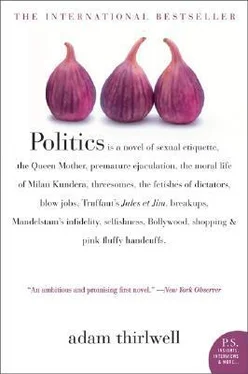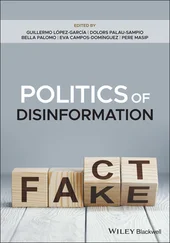13
My mother’s Czech friend, Petra, disliked Milan Kundera. She thought he should not have left his country. She thought that he was selfish.
I own a weird French edition of Milan Kundera’s second novel Farewell Waltz. This edition was published in 1979. It has a fake red leather cover, with a fake gold embossed pattern printed on it. As an introduction, there is an interview with
Milan Kundera. I am going to quote you one sentence from this interview. ‘No one can suspect what it cost me to leave my country: my hair turned grey,’ said Milan.
I think we should remember some dates here. Kundera was born in 1929. When he left Czechoslovakia in 1975 he was, therefore, forty-six. That is quite an old age to leave your country. And he left only after seven years of living, under surveillance, in the forest near Brno, unpublished and isolated. Seven years is a long time to stay somewhere in isolation.
I do not think people are very intelligent about selfishness. I do not think they see how moral it can be. Because it is moral, refusing to be self-destructive. It is a perfectly moral position.
14
Papa was the benevolent angel of this story.
All along, I have been telling you this. It was not just a friendly image. It was true. It was benevolent, telling Nana to be selfish. It was benevolent, telling her to leave. Sometimes you cannot be altruistic. Sometimes, I think, it is too self-destructive. Maybe this seems blasphemous, maybe this offends your own personal morality. But I am right.
This book is universal. I said that at the start. Because it is universal, it is ambiguous. It has something for everyone. And the final ambiguity is this.
I am obviously on Papa’s side. I obviously admire his generosity and love. Me, I believe in generosity. But I am not only on Papa’s side. I am on Nana’s side too. Because
I can see the point of niceness. It is a very wonderful thing.
But what is really wrong with selfishness? Selfishness is sometimes moral too.
The author and publishers wish to thank the following for permission to reprint copyright material:
Verso Books for permission to reprint material from Investigating Sex: Surrealist Research 1928 - 1932 , edited by Jose Pierre, translated by Malcolm Imrie; The Random House Group Ltd for permission to reprint material from The KGB’s Literary Archive by Vitaly Shentalinsky and Hope Abandoned by Nadezhda Mandelstam, both published by The Harvill Press; and material from The Private Life of Chairman Mao: The Memoirs of Mao’s Personal Physician Dr Li Zhisui by Dr Li Zhisui and Professor Hung-Chao Tai, published by Chatto Windus.
Every effort has been made to trace copyright holders, and the publishers will be happy to correct mistakes or omissions in future editions.
Adam thirlwellwas born in 1978 and grew up in North London. He was placed on Granta’s 2003 list of Best Young British Novelists Under Forty. He is assistant editor of the magazine Arete, and a Fellow of All Souls College, Oxford. Politics is his first novel.
Visit www.AuthorTracker.com for exclusive information on your favorite HarperCollins author.












